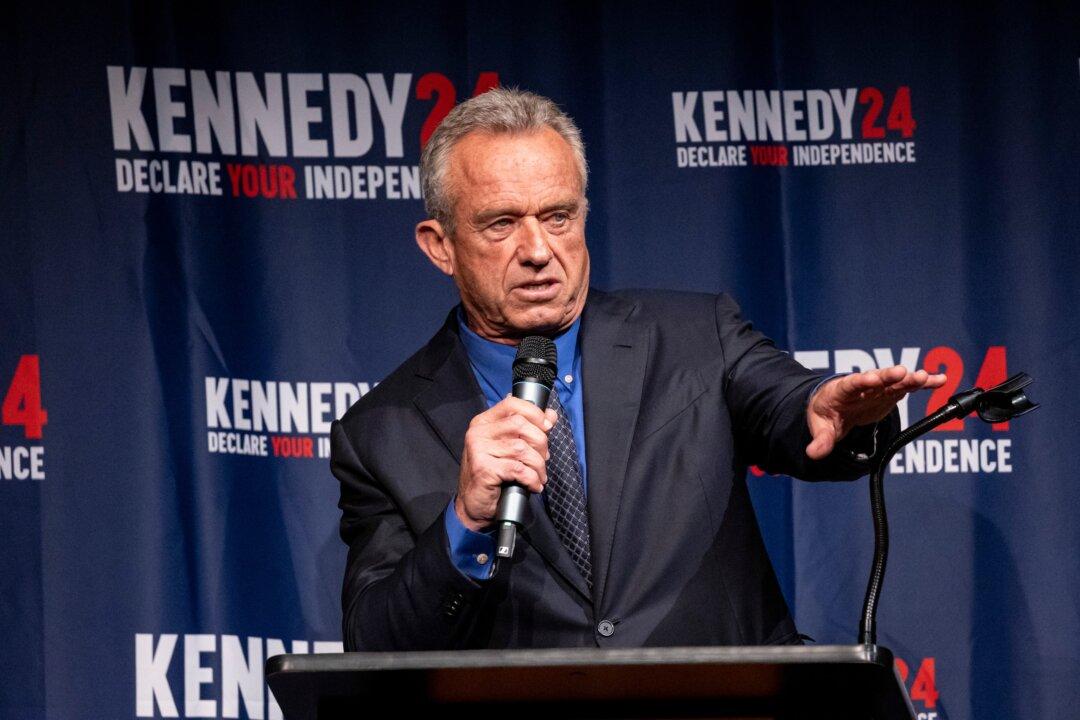KANSAS CITY, Mo.—Minutes after a voter rally where he told a crowd of 800 that “he intends to win” the 2024 presidential election, Robert F. Kennedy Jr. told reporters that he will name a vice presidential candidate “fairly soon.”
Mr. Kennedy, who left the Democrat primary to run as an independent on Oct. 9, is traveling the country and holding voter rallies, where he collects signatures to meet requirements for appearing on the ballot of all 50 states and Washington D.C.





